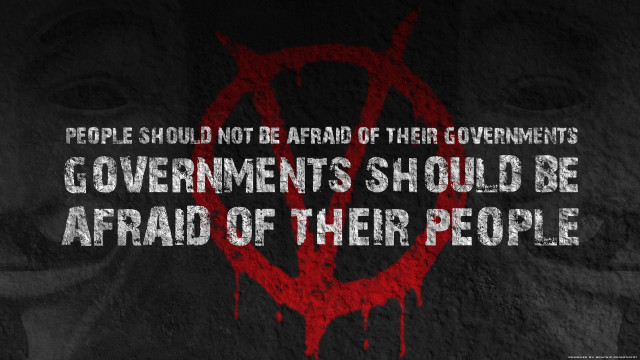There are those days when I spend good two to three hours just going through whatever 9gag or 4chan or those pages on satirical political comedy at Facebook have to offer me and sickening it might sound, but they do form a good, huge part of all the things that amuse me. I have been conscious enough to realize that even my sense of humour is shaped by memes, webcomics, parody videos, stupid, pointless Tumblr reblogs and the related. I also have been conscious enough to understand how much dependent have I become on the internet to keep myself amused.
However, one must understand neither am I the only one in the league, nor silly jokes and stupid Tumblr reblogs are the only addictions internet has to offer.
Internet is the information highway which can be accessed by anyone, anyhow. Technology today just doesn’t seem to stop growing, and almost everyday the consumer has a new choice available in this immensely diversified market of possibly everything man could ever imagine, and even beyond.
The ease of access now understood and realised, you can’t stop thinking about what this information highway can provide. It’s frightening, yet exciting, to think about how it can just dole out information about almost anything, and it’s not even an exaggeration.
We all face this, and we all understand this, but the consequences of this inevitable, increasing dependence upon the internet are far more varying, and the consequences are practically borne by everybody and we don’t even realize what’s going on.

There are laws that concern themselves with internet, but no law governs the internet. Censorship is a different thing altogether, but save some exceptional cases, even that doesn’t limit what internet can reach.
Exceptions are always there. There are states which can go on devising laws, mechanisms and what not, which can be possibly devised and might even dare to start venturing the rather impossible avenues. They can control the internet in a particular geo-political space, but what about the rest of the world? There are countries the states of which choose to divorce themselves from internet as an “obsession/fad/trend among the youth” and it’s absolutely ridiculous to even think of internet as an impotent toy of given to pacify the curious younger lot.
This space which connects, informs, enlightens has become powerful enough to mobilize masses, and here comes the role of social networking sites. Many recent movements came about because their foundations were first laid by ferment over existing political scenario in their respective countries through discussions on forums and social networking websites. Internet has been a platform for many to voice their opinions and things literally escalate quickly here.
Something that people can possibly relate greatly to is this mass virtual movement against the rapes, the communal/racial violence break-outs in the country and issues strongly contested, debated and discussed and all the time, this process of engaging oneself without putting a lot of physical effort into the pursuit is something that is being sought after greatly these days.
So, you now have a space, a largely ungoverned space which is has the potential to start off movements, create intellectual ferment, kindle dissatisfaction and irritation into a fire and so on. Governments realize this, and even the ones celebrating so are in one way or another are wary of what goes on the internet. The past few years have been those times when freedom on internet, privacy and movement of information have been under scrutiny by analysts and law makers and why shouldn’t they engage themselves in exhaustive debates on this ungoverned space?
This is why I am more concerned about the direct consequences of increasingly engaging interaction of people from practically all backgrounds, most of them exact representation of their kind, over this space.
This ungoverned, untamed, free interaction (largely free, at least) is causing shifts in the way people view things. Ideas being disseminated in powerful forms, for example, videos, digital art, pieces of writings tell something to the individual exposed to those ideas, and make him question certain things in a certain way. What I would like to call this is democratization and development of an informed opinionated class of people, which consists mostly the youth.
Added, this has also raised the level of awareness, and you can sense the effort of liberalised thought processes behind the various online awareness campaigns. These efforts have been made not only by individuals but organizations, like Amnesty International, media houses and corporations and so on.
While it all might sound very beautiful and harmonious and seemingly heavenly, there are certain negative consequences of this ungoverned space, which are bound to be there.
The topmost of my concerns would be sensationalisation, exaggeration, and distortion of the truth. Well researched young men and women losing their minds and the social networks being used to promote everything that they have to blurt out is just disconcerting.
The other thing would be misusing the negative liberty this space offers. The concept of negative liberty is essentially about non-interference with your level of freedom. This concept, just what defines this concept, can be seen here. There’s absolutely no concern for sentiments of others, and then, you have these recent phenomenon like cyber crimes and them increasing in number.
So, can something be done to govern this space? I don’t think so. However, I don’t think I would be wrong to recall ideologies like anarchism in this context. We need the government to maintain law and order and yes, cyber crime is a domain that should be actively worked upon and mechanisms should be developed to counter cyber crimes.
But when it comes to things like thoughts and ideas and expression, I think the internet is a huge community and it can effectively be a self-governed community if there exists an understanding and respect and observation of etiquettes and ethos, an order will come about soon. Bringing about an order doesn’t necessarily mean compromising with freedom.
Thinking about it, the way internet picks up trends, the spread in the prevalence of an order shouldn’t face resistance among the people.



































